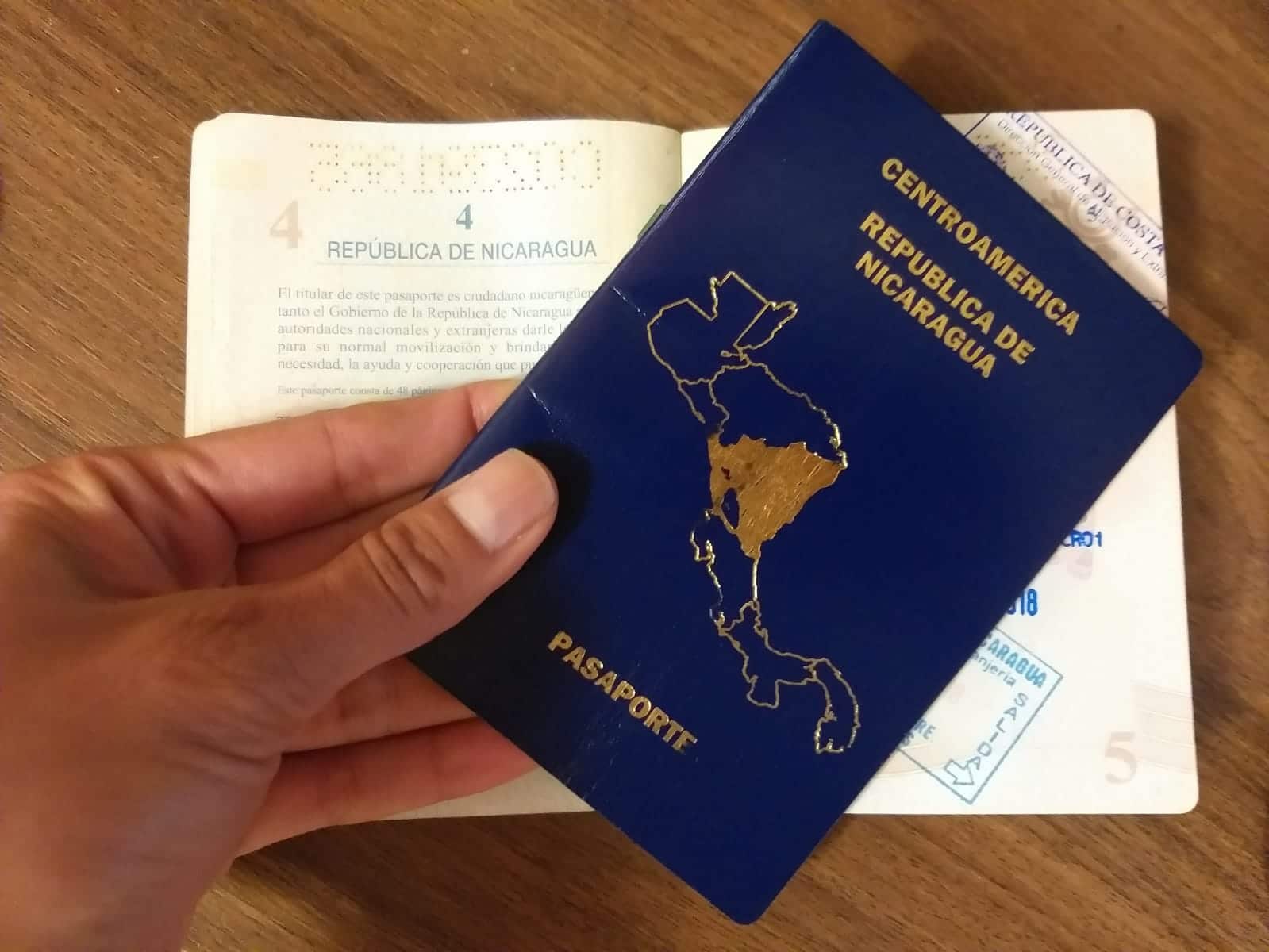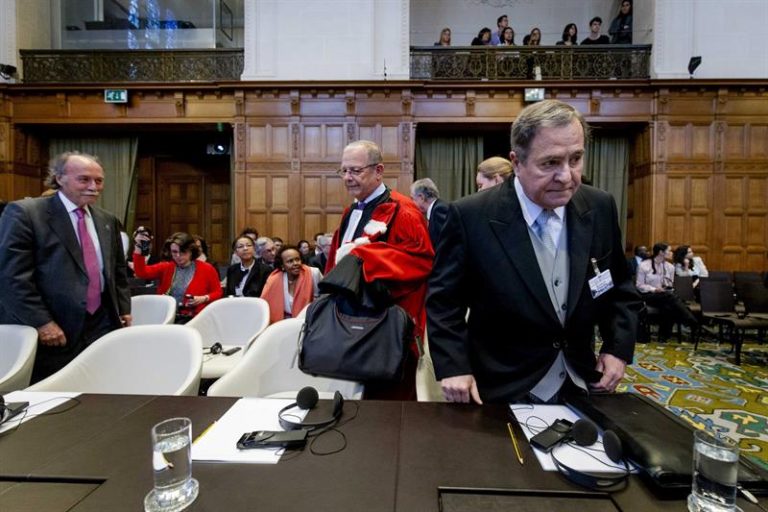28 de marzo 2016

Nicaragua: Public Employees Hindered from Traveling to USA

PUBLICIDAD 1M
PUBLICIDAD 4D
PUBLICIDAD 5D
Respect for the law has only one yardstick. The rule of law must be restored

The embassador of Nicaragua in The Hague, Carlos Arguello Gomez, after the ruling at the World Court in The Hague. Photo. Bas Cezrwinski/EFE
The favorable ruling at the International Court of Justice in The Hague in the matter of Nicaragua’s dispute with Colombia reveals both a flagrant contradiction and holds a lesson for us.
The lesson is that following the path of established policies yields positive results for the nation over the long haul. The defense of Nicaragua’s territorial interests is one of the few national strategies that have been pursued with continuity by all the different governments over the last forty years.
The same thing has never occurred in other areas that are crucial to our development, such as education, fiscal policy or the construction of democratic institutions. In these cases, the norm has been: “start again with a clean slate,” or even worse, demolish everything the previous governments had done. The latter has been Ortega’s course with everything related to building democratic institutions.
In addition, Colombia’s refusal to recognize the authority of the International Court to delineate the border between the two countries is doubly ironic, in a way that reflects on Colombia as much as it does on Nicaragua.
On the one hand, rejecting the ruling and the jurisprudence of the International Court of Justice merely because it wasn’t favorable to his country is in no way consistent with President Juan Manuel Santos’ claim of being the perfect democratic leader.
And on the other hand, it’s also inconsistent that the government of Comandante Ortega should celebrate the validity and legitimacy of the international law emanating from the court in The Hague, at the same time that he presides over an authoritarian regime that systematically violates the national Constitution and the most elemental norms of the law.
Suffice it to say that in our country they don’t even respect the constitutional norm of 48 hours to detain someone before either letting them go or putting them before a judge; and that we also lack a minimum degree of checks and balances between the state powers. Rather, these have lost their autonomy and are subject to the orders and rulings of the leader in the most grotesque way.
Therefore, in the same way that we question President Santos for refusing to recognize the resolution from The Hague in contradiction with his democratic commitment, we Nicaraguans should demand that our government’s policies inside the country be consistent with what it proclaims on the outside.
The government can’t go on being “Dr. Jeckyll” in public and “Mr. Hyde” at home. If Comandante Ortega wants his government to be respected and taken seriously as a loyal defender of international law, then it’s also obliged to respect the law and democratic proceedings in our country without exception. This must involve fully restoring the rule of law which has been violated by an authoritarian order.
There aren’t two different yardsticks for measuring respect for law. A congruent policy should begin by restoring the right to free and transparent elections and returning the power of decision to a sovereign people.
---
This article has been translated from Spanish by Havana Times.
PUBLICIDAD 3M
Periodista nicaragüense, exiliado en Costa Rica. Fundador y director de Confidencial y Esta Semana. Miembro del Consejo Rector de la Fundación Gabo. Ha sido Knight Fellow en la Universidad de Stanford (1997-1998) y profesor visitante en la Maestría de Periodismo de la Universidad de Berkeley, California (1998-1999). En mayo 2009, obtuvo el Premio a la Libertad de Expresión en Iberoamérica, de Casa América Cataluña (España). En octubre de 2010 recibió el Premio Maria Moors Cabot de la Escuela de Periodismo de la Universidad de Columbia en Nueva York. En 2021 obtuvo el Premio Ortega y Gasset por su trayectoria periodística.
PUBLICIDAD 3D